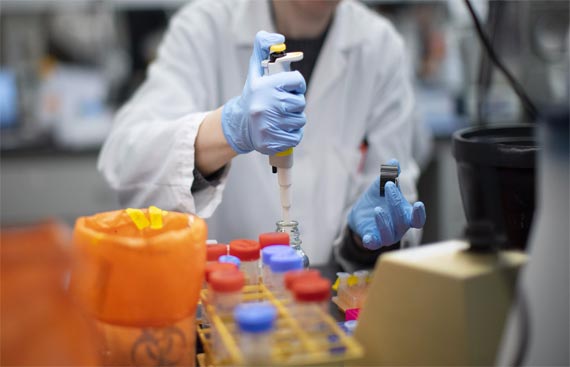IIsc-Incubated Biotech Startup, Mynvax, Looks At Covid-19 Vaccine In 18 Months

Biotech start-up, Mynvax, that is developing a homegrown vaccine to prevent Covid-19 infections, expects a safe and efficacious one to be ready in about 18 months. The start-up, incubated at the Indian Institute of Science, Bengaluru, also said it was critical to build capability to produce the vaccine in large numbers.
“We also need to have technologies and facilities that can produce several hundreds of millions of doses of the vaccine to protect those most in need,” Raghavan Varadara co-founder of Mynvax and a professor at the Molecular Biophysics Unit, said.
The IISc-Mynvax team is among more than two dozen teams in India working on a vaccine to combat the outbreak that has disrupted societies across the globe. Mynvax, which is backed by the Bill and Mellinda Gates foundation, has developed several candidate immunogens and completed initial animal trials.
“We are working on multiple new molecules for which we will have animal data in the next few months,” Varadarajan said. “These are sub unit-based vaccines. It requires testing in animals before we go to humans. We also need to look at efficacy, cost of production and scalability.”
He added that there needs to be multiple vaccine candidates as the virus is likely to be around for some time. "It is unclear at this time what the best candidates would be." Mynvax has applied for Rs 15 crore in funding from the Biotechnology Industry Research Assistance Council (BIRAC) to scale up the process.
Previous studies have shown that antibodies against the spike glycoprotein found on the surface of the earlier 2003 SARS-CoV virus inhibit viral infection in culture and confer protection against infection in animal models. Hence, Mynvax and others are attempting to design and test variants of the spike glycoprotein of SARS-CoV-2 (Covid-19) as vaccine candidates, its researchers wrote in a summary of their project. "There are spike proteins on the virus. It binds to receptors called the Ace2receptors," Varadarajan said. "We and others are developing various derivatives of the viral spike protein as vaccine candidates that will induce protective anti-bodies."
Read More News :
Dabur Chairman Buys Wellness Startup Stake
The Economy Boost Plan of the Government Focuses on Reviving MSMEs


.jpg)
